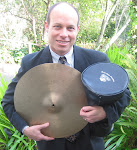Defense attorneys never cease to amaze me by creatively finding ways to avoid culpibility. A brain tumor that destroyed part of the frontal cortex (as in the famous and partially mythical case of Phineas Gage) might increase impulsivity. However, if Hayashi had a tumor anywhere else her tendency for kleptomania would be unlikely. Counsel stated that the tumor had been successfully treated. It's size has been diminished, and so, according to Hayashi's counsel, her propensity to take things without paying for them has also shrunk--a happy ending.
Less happy was Dan White's murder of San Francisco mayor George Moscone and gay activist Harvey Milk in 1978. White was convicted of the lesser charge of involuntary manslaughter rather than first degree murder. Wikipedia recounts:
White's defense team claimed that he was depressed, evidenced by, among other things, his eating of unhealthy foods (inaccurate media reports that White's defense had presented junk food consumption as the cause of his mental state, rather than a symptom of it, would give rise to the legal term "Twinkie defense"). The defense argued that White's depression led to a state of mental diminished capacity, leaving him unable to have formed the premeditation necessary to commit first-degree murder. The jury accepted these arguments, and White was found guilty of the lesser crime of voluntary manslaughter.The Hayashi and White cases have much in common. Neither suspect is "all there," either due to a brain tumor or depression. Thus it was not a premeditated crime. Do not misunderstand me. An insanity defense is a necessary component in a just society . Daniel N. Robinson writes in The Great Ideas of Psychology (The Teaching Company) that there "is no time in the recorded history of Western jurisprudence when there has not been an insanity defense. You will find it as early as the homicide laws of Draco in the ancient Greek world." More importantly in the development of English and American law, the Romans regarded a defendant as insane if he acted like a wild beast, "beyond the reach of reason." What "criteria have to be satisfied to qualify one as insane"? These "criteria have had a quite shifting history" (Robinson).
The shift has gone too far against the idea of personal responsibility. Today, depression, schizophrenia and other psychiatric ailments, brain tumors, child and spousal abuse, and systemic racism are used by defense attorneys in the courtroom, all with the expressed purpose of demonstrating either diminished capacity or justifiable reason for committing the crime. It is time to shift closer to the Roman ideal. We have seen some shift after the 1982 Hinkley case (trying the would-be assassin of President Reagan).
Two-thirds of the states that recognize the insanity defense now place upon the defendant the burden of persuading the jury that he or she was insane at the time of the offense, usually requiring proof by a preponderance of the evidence. A federal statute holds the defendant to an even higher standard, requiring proof of insanity by clear and convincing evidence (link here).





No comments:
Post a Comment